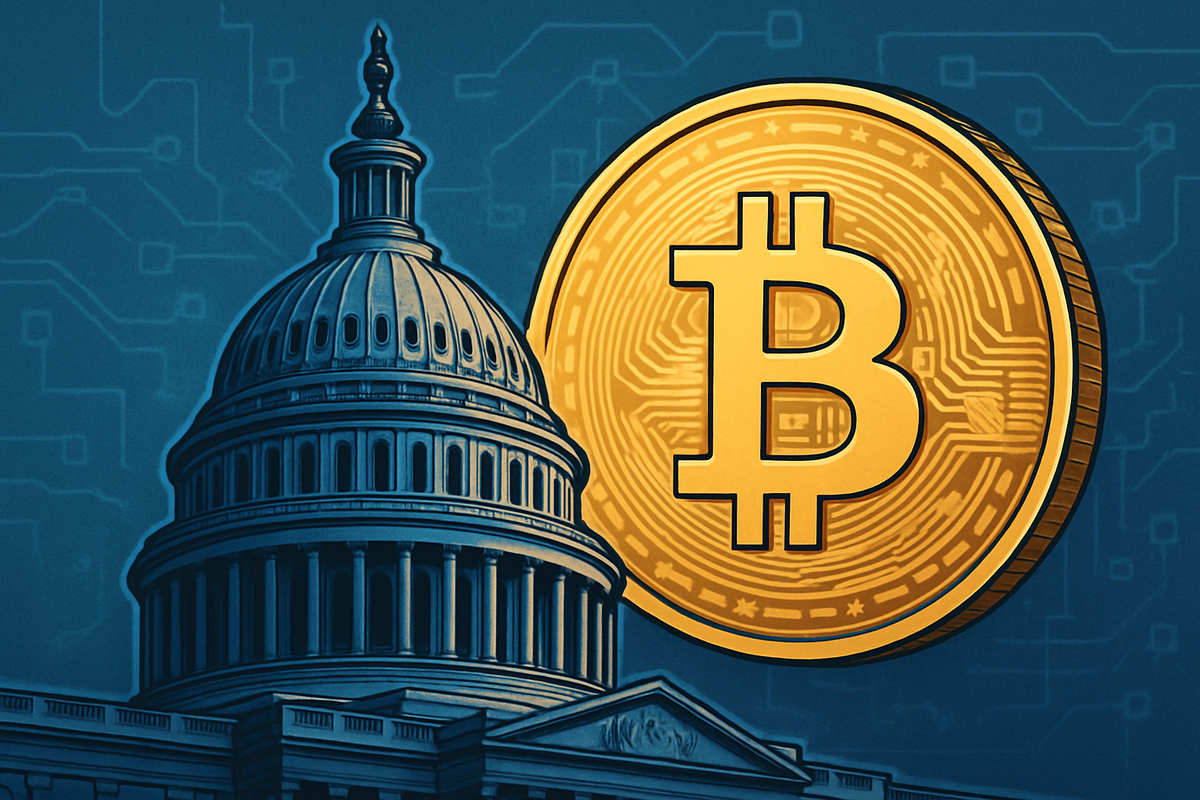
The U.S. government has officially clarified its position on acquiring Bitcoin (BTC), stating that it will not be purchasing additional Bitcoin for its strategic reserve. This announcement, made by U.S. Treasury Secretary Scott Bessent in August 2025, specifies that while a Strategic Bitcoin Reserve exists, it will be built up solely through confiscated assets rather than new market acquisitions. This decision has significant implications for the cryptocurrency market and the broader financial landscape.
Key Information
In August 2025, U.S. Treasury Secretary Scott Bessent confirmed that the U.S. government would not be actively purchasing Bitcoin to expand its Strategic Bitcoin Reserve. This reserve, established by an executive order signed by President Donald Trump in March 2025, is primarily capitalized with Bitcoin forfeited to the Department of Treasury through criminal or civil asset forfeiture proceedings. The government has committed to not selling the Bitcoin deposited into this reserve, maintaining it as a store of reserve assets. The current estimated value of the U.S. government's Bitcoin holdings ranges between $15 billion and $20 billion. Alongside the Bitcoin reserve, a "U.S. Digital Asset Stockpile" was also created for other digital assets obtained through forfeiture, with no plans for additional acquisitions beyond these means.
Context and Background
The U.S. government's approach to Bitcoin and cryptocurrencies has undergone a notable evolution, moving towards establishing a strategic reserve and a more defined regulatory framework.
- Historical Context: The establishment of the Strategic Bitcoin Reserve in March 2025 marked a significant shift. Previously, the government's interaction with seized cryptocurrencies often involved auctions or sales. The new policy of holding confiscated assets as a reserve signifies a recognition of Bitcoin's potential as a long-term store of value.
- Broader Cryptocurrency Approach: The Trump administration has expressed a desire to position the United States as the "crypto capital of the world." This ambition is supported by efforts to roll back certain regulatory enforcement measures and advocate for legislation aimed at broadening the accessibility and appeal of digital assets.
- Regulatory Framework: While a comprehensive, unified regulatory framework for cryptocurrency in the U.S. is still under development, various federal agencies regulate digital assets under existing laws:
- The Securities and Exchange Commission (SEC) has authority over digital assets that qualify as securities.
- The Internal Revenue Service (IRS) treats cryptocurrencies as property for tax purposes, meaning transactions may trigger capital gains or losses.
- The Commodity Futures Trading Commission (CFTC) regulates cryptocurrencies as commodities under the Commodity Exchange Act.
- The Financial Crimes Enforcement Network (FinCEN) governs virtual currency businesses and wallet services as Money Services Businesses, enforcing anti-money laundering and counter-terrorism financing regulations.
- Recent Legislative Developments:
- In 2025, the GENIUS Act (Guiding and Establishing National Innovation for U.S. Stablecoins Act) was signed into law, providing clear rules for stablecoin issuance.
- Other proposed bills, such as the CLARITY Act (Digital Asset Market Clarity Act) and the Anti-CBDC Surveillance State Act (which would ban the Federal Reserve from releasing a central bank digital currency without congressional approval), have passed the House and are currently under Senate consideration.
- Department of Labor Guidance: The U.S. Department of Labor rescinded its 2022 guidance that had previously discouraged fiduciaries from including cryptocurrency options in 401(k) retirement plans, adopting a more neutral stance.
Implications
The U.S. government's decision not to purchase Bitcoin, instead relying solely on confiscated assets for its reserve, carries several implications:
- Short-term Implications: In the short term, this policy means there will be no direct government-driven buying pressure on the Bitcoin market from new acquisitions. This could temper expectations of a significant price surge driven by institutional government demand. However, the continued holding of confiscated assets removes potential selling pressure from the market.
- Long-term Outlook: The long-term outlook suggests a more stable and predictable government involvement in the crypto space. By building a reserve through forfeiture, the government signals a strategic, rather than speculative, interest in Bitcoin as a reserve asset. This could lend legitimacy to Bitcoin as a recognized asset class, potentially encouraging broader institutional adoption.
- Factors That Could Change the Situation: While the current policy is clear, several factors could lead to a change in the future. Significant geopolitical shifts, a major economic crisis, or a dramatic re-evaluation of Bitcoin's role in global finance could prompt the government to reconsider its acquisition strategy. Additionally, future legislative actions or changes in administration could alter the current stance.
Summary
The U.S. government has definitively stated it will not be purchasing Bitcoin for its Strategic Bitcoin Reserve, opting instead to build this reserve exclusively through confiscated assets. This policy, clarified by Treasury Secretary Scott Bessent in August 2025, underscores a strategic approach to digital assets, positioning Bitcoin as a held reserve asset rather than a speculative investment for government acquisition. While this means no new buying pressure from the government, it also signifies a commitment to holding existing confiscated Bitcoin, potentially lending further legitimacy to the cryptocurrency as a recognized and valuable asset. The evolving regulatory landscape and ongoing legislative efforts continue to shape the U.S.'s broader engagement with the digital asset ecosystem.






